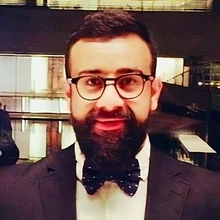Publications
Modi Courts Putin with an Eye on Trump’s Disapproval  By Shanthie Mariet D’SOUZA, PhD, founder & president, Mantraya Institute for Strategic Studies (MISS)
By Shanthie Mariet D’SOUZA, PhD, founder & president, Mantraya Institute for Strategic Studies (MISS)
Strategic autonomy worked when Washington was indulgent. Now India must choose what matters more.
It may be no more than an annual ritual: the Indian Prime Minister and the Russian President meeting each other alternately in either country. However, the current geopolitical churn creates a special interest in Vladimir Putin’s impending visit to India, tentatively planned for the first week of December 2025, to attend the 23rd India-Russia Summit. He is expected to devote a large part of his meeting with Narendra Modi to finding ways to keep the strategic relationship alive amid New Delhi’s continuing attempts to arrive at a compromise trade deal with Donald Trump’s America. Unlike Putin’s India visit in 2021, which was a quieter affair, New Delhi is now laying out the trappings to greet the Russian President. Although the visit may not witness the grand optics mostly reserved for US leaders, a slew of preparatory visits by senior officials from either side are underway to make Putin’s official trip appear out of the ordinary. READ MORE
Publications
The 2025 Trump–Putin Summit in Alaska: Geopolitical Implications Amid the Ukraine War
 By Yunis GURBANOV, PhD, Senior Advisor at the AIR Center, Baku
By Yunis GURBANOV, PhD, Senior Advisor at the AIR Center, Baku
The Alaska summit highlighted the discordant divergence between Washington and Moscow after Russia's invasion of Ukraine, and exposed the limits of summit diplomacy in the context of a grinding war. President Trump reaffirmed America's formal commitment to Ukraine's sovereignty and NATO's deterrent stance, but his words were typically qualified by continual calls for a "realistic settlement" with Moscow. This contrasted sharply with the State Department’s prior line, suggesting internal tensions within Washington’s approach. President Putin, for his part, sought to capitalize on these uncertainties: he promoted Russia's military successes as irreversible facts on the ground, demanded Western recognition of occupied land, and framed Moscow's actions as a defensive reaction against NATO "encirclement. READ MORE
Publications
Russia — Ukraine’s Accidental Matchmaker
 By Fuad Shahbazov, Baku-based independent regional security and defence analyst
By Fuad Shahbazov, Baku-based independent regional security and defence analyst
Uneasy neighbours at the best of times, open hostility from the Kremlin is pushing Azerbaijan closer to Ukraine.
Russian drones attacked an oil depot in Odesa in Ukraine on August 17. That’s not unusual, but that night’s target was notable in one important sense — the Kremlin struck high-profile infrastructure owned by SOCAR, Azerbaijan’s state oil company. This was no accident. Russia had attacked the same SOCAR facility in Ukraine on August 8. Taken together with a series of other events, it has become clear that Putin’s men are sending a message. That comes at some risk to themselves and potential benefits for Ukraine. These weren’t the first or even the most serious Russian acts of hostility against the energy-rich South Caucasian nation. On Christmas Day, Russian missile batteries shot down a scheduled Azerbaijan Airways plane, killing 38 people. The incident caused uproar, not least because while the missile firing may have resulted from mistaken identity, Russian air controllers refused the badly damaged aircraft permission to land. READ MORE